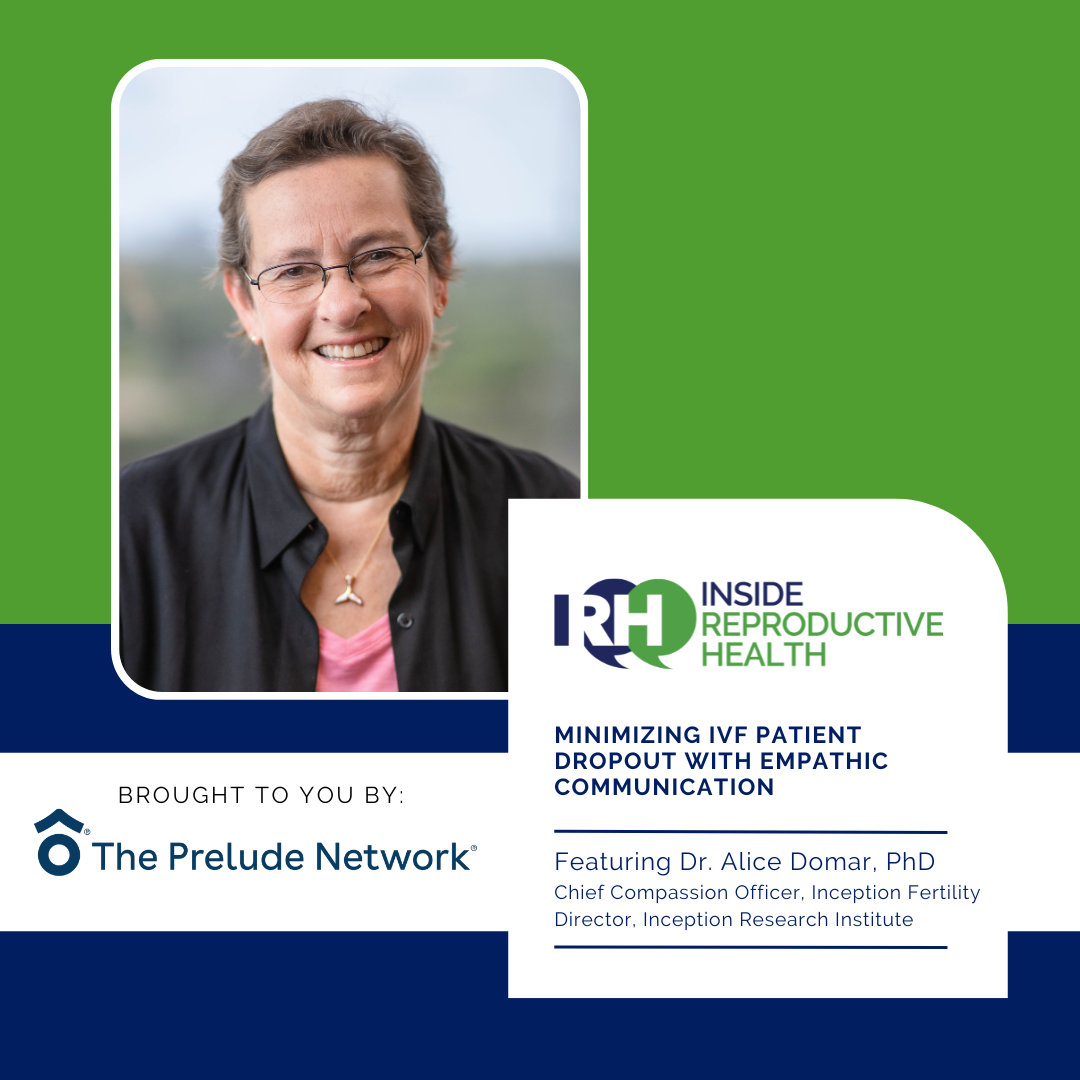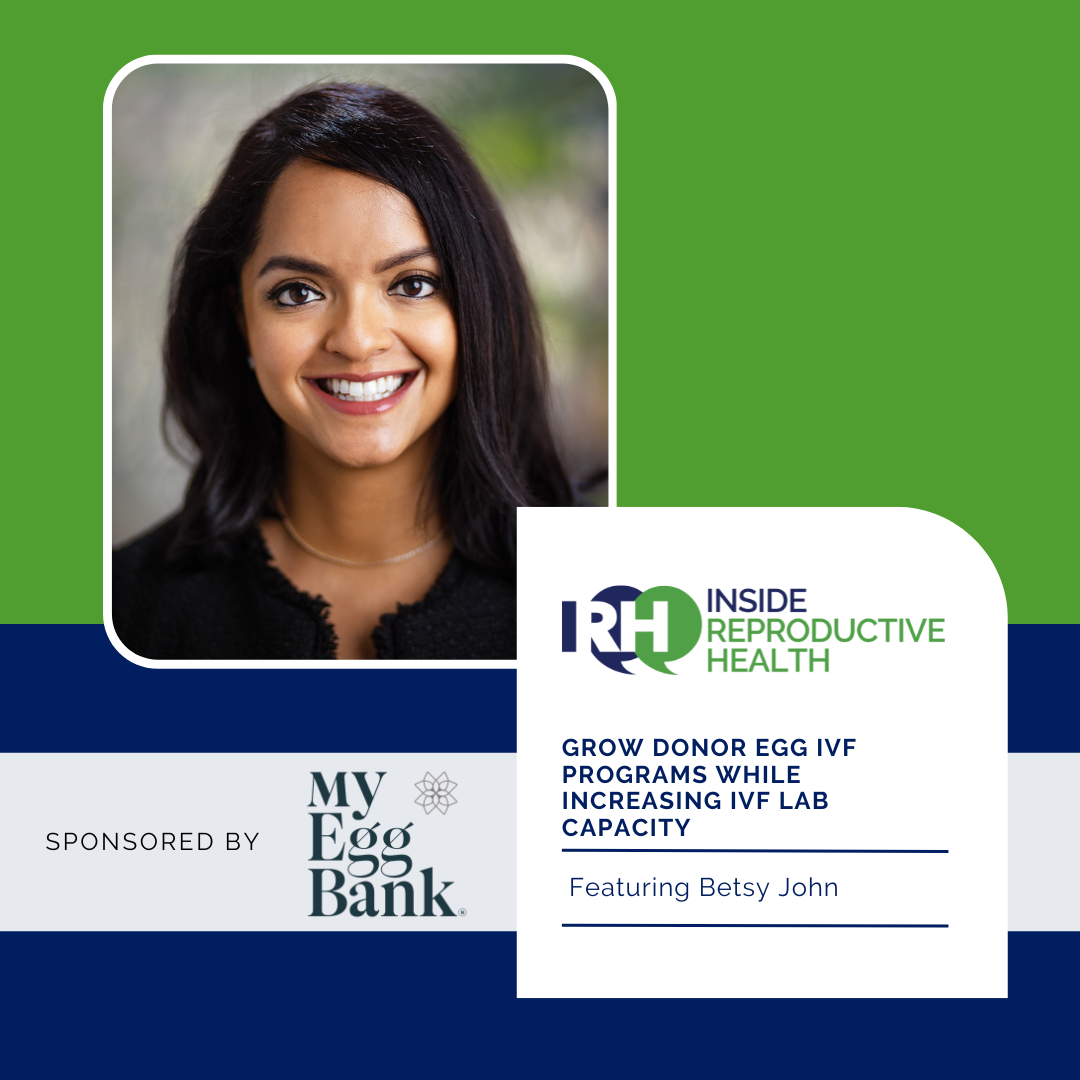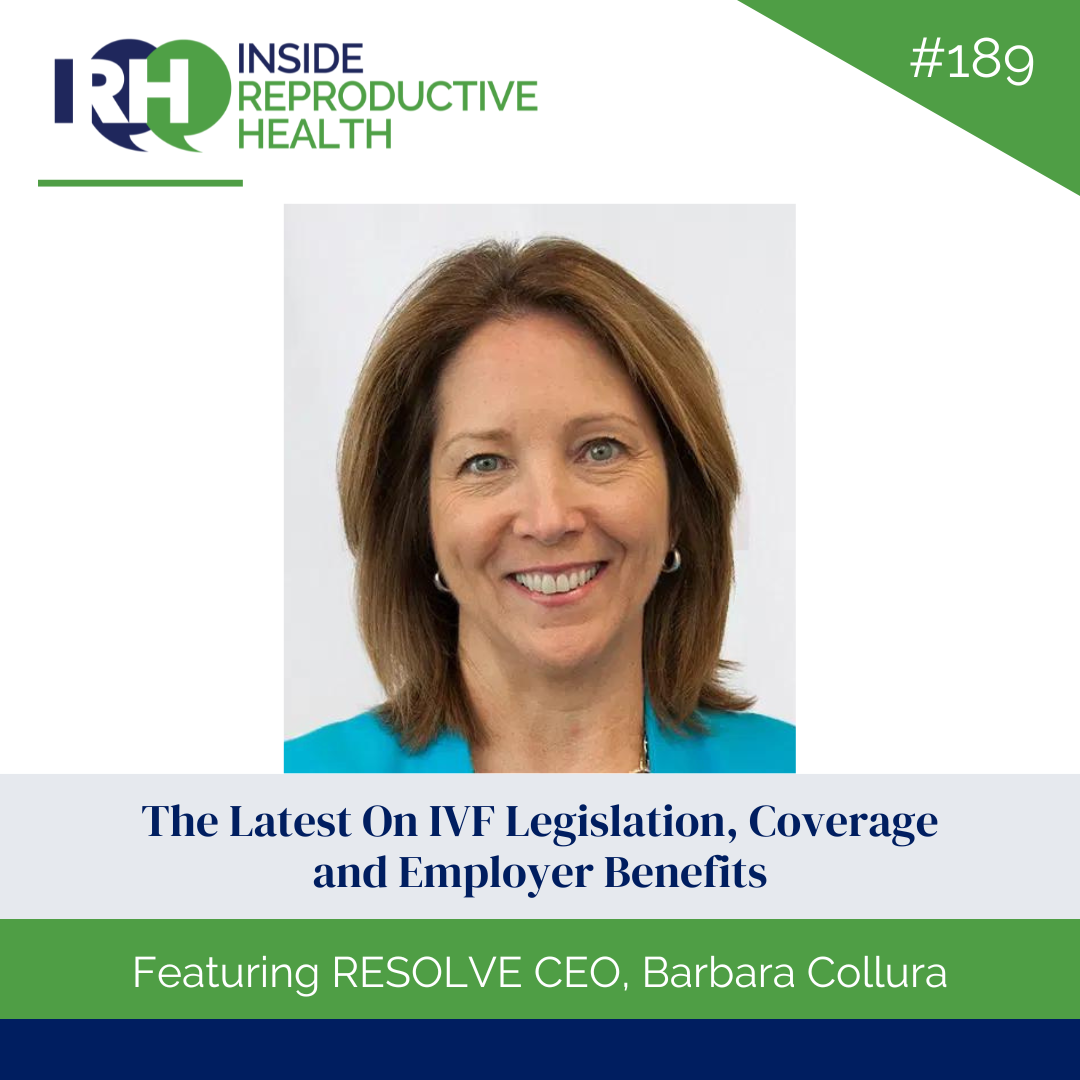On Inside Reproductive Health this week, Griffin Jones chats with Rescripted founders, Abby Mercado and Kristyn Hodgdon about their business model, how it came to be, and what risks they have in this space. How has Rescripted’s capital been invested? How do they keep content fresh? Will they survive and thrive in this space, even though so many others before them have failed- despite having massive capital? Listen now and join the conversation, with Griffin Jones on Inside Reproductive Health.
Listen to hear:
Griffin point out that pharmacies missed the boat- they could’ve seized the direct to consumer route, but did not.
Abby and Kristyn break down their business model, why it works, and what they won’t allow in their space.
Griffin discuss raisers of capital who had the cash, but ultimately failed, and question whether or not Rescripted has what it takes to beat the odds.
Abby and Kristyn explain why, and how, Rescripted was founded, and where it hopes to go in the future.
Fertility centers often set new patient appointments and IVF retrieval goals without examining their relationship together. When we ask practice owners to state growth goals for new patient appointments and IVF retrievals, the difference almost always equates to a decrease in current IVF conversion rate.
Marjorie Dixon is the founder, CEO, and Medical Director of Anova Fertility and Reproductive Health in Toronto, Canada. After completing her training in the States and experiencing what the field was like in her home country of Canada, Dr. Dixon knew she wanted to start a new clinic that used the best technology, provided the best care, and increased access-to-care for the LGBTQI+ population, one that was close to her heart.
On this episode of Inside Reproductive Health, Griffin digs into why Dr. Dixon chose to start her clinic in Toronto and what she does to not only increase the availability of care to all populations, but what she does to make them feel welcome in her practice.
As we head into a new (and hopefully better) year, we wanted to take a look back on all the wonderful, inspiring guests we had on Inside Reproductive Health throughout the year. We talked about affordable care, mentoring new staff in the clinic and the lab. We learned about independent clinics and how they thrive despite heavy network competition, networks and how they continue to provide personalized care even after becoming publicly-owned. We talked about reducing physician burnout and increasing patient communication. And so much more.
On this episode of Inside Reproductive Health, we highlighted your favorite episodes and compiled the best clips into one episode for you to enjoy as 2020 wraps up.
Patient advocacy has always been an important part of the fertility field. With great organizations and lots of outspoken patients, patients are receiving more education outside of the clinic. But should physicians be involved in this sort of advocacy, too? Don’t they have enough on their plates?
On this episode of Inside Reproductive Health, Griffin spoke to Dr. Serena Chen of IRMS and Saint Barnabas Medical Center and Dr. Roohi Jeelani of Vios Fertility. Together, they co-authored a recently published paper, “Is Advocacy the solution to physician burnout?” They discuss why physicians should be more involved in advocacy and educating patients outside of their clinic. And why, against what one might think, it could reduce burnout for physicians in the long run.
Dr. Aimee Eyvazzadeh is a single-physician practice owner, operating out of her clinic in the San Francisco Bay area. When she entered the field in 2008, she had one goal: reach every person who needs access to fertility care. To her, that doesn’t necessarily mean treating every patient, but it does mean putting out valuable information for patients to help them make informed decisions and, hopefully, help them reach their dreams of becoming pregnant.
On this episode of Inside Reproductive Health, Griffin and Dr. Aimee explore all the ways that she is trying to change the patient-physician relationship through communication both in and outside of her office. From her extended hours and lax phone call policy to her Podcast and YouTube channel, she has made herself accessible to her direct patients and her audience around the world. She shares what our clinics can do to further build their relationship with their patients and help make patient journeys just a little bit easier.
As of August 2020, less than half of the states in America have some form of mandated insurance coverage for fertility treatments. Some require coverage for IVF, some cover preservation, but more than 30 states still have no requirement for covering fertility treatments in any form. But why? Is coverage really beneficial on the business side of the fertility field?
On this episode of Inside Reproductive Health, Griffin spoke with writer and women’s health advocate, Jennifer “Jay” Palumbo. Jay is currently the Chief Executive Officer at Wonder Woman Writer, LLC and is an avid women’s health advocate. From her award-willing blog “The Two Week Wait” to working at major fertility benefits companies, her experience has helped shape her mission to advocate for women’s health needs, especially when it comes to infertility.
In this episode, we uncover the pros and cons of mandated coverage from both the patient and the clinic side.
Patients were heartbroken by fertility clinic shutdowns due to the COVID-19 Pandemic. People who have waited for possibly years for their chance to start or continue to build their family had their hopes dashed when they learned their treatment would be delayed for an indefinite amount of time. But how did clinics handle the communication with their patients? And are patients ready to come back with the threat of the disease still looming?
To help answer those questions, RESOLVE, the National Infertility Association, conducted a survey asking over 500 patients directly impacted by the shutdowns to share their experiences.
On this live episode of Inside Reproductive Health, Griffin spoke to Barbara Collura, President and CEO of RESOLVE. She walked us through the survey's results and what your clinic can do with the results to make a better experience for your patients who had to stall their fertility treatments, as well as those coming in during these unknown times.
The first trimester of pregnancy is crucial. Organ development is taking place, the placenta is being developed, things that can affect the trajectory of the entire pregnancy, or the baby’s life. But as of now, there is no data on the potential impact of COVID-19 during this critical stage of development.
But soon, that will all change. And what will it mean for fertility clinics once there is scientific data?
On this special live episode of Inside Reproductive Health, Griffin spoke with Dr. Eleni Jaswa and Dr. Marcelle Cedars, two of the Principal Investigators of the ASPIRE study being conducted through UCSF Center for Reproductive Health. This study hopes to reach 10,000 pregnant women in their first trimester and monitor them, looking for any impact that COVID-19 might have on fetuses through babies aged 18 months. They share the ultimate goal of the study, just how they are going to do it, and what you can do to be involved to help patients make more informed decisions when it comes to the potential risks of COVID-19.
Potential patients have found you (and your competitors). They've done their research. Now, it’s up to you to give that final nudge to make that first appointment.
In this webinar, Griffin Jones continues down the patient acquisition funnel: The Decision Phase. This is where customers choose their fertility clinic, and enter it again after they are presented with their options for treatment. The stakes are high, but proper planning can lead to full schedules and ultimately, happy families.
Your name is out there via social media. You’ve provided education on your website. Your brand is established. Your competition has done the same. So what can you do to steer them toward you?
- CEO and C Suite 10
- Fertility Patient Relations 100
- Mergers & Acquisitions 2
- Practice Ownership 2
- Strategy 69
- IVF Lab 24
- Technological Innovation 47
- Technology 11
- Private Equity and Venture Capital 34
- Fertility Practice Management 106
- Partnership and Recruitment 50
- Compliance 33
- Physician Leadership 1
- Training & Education 8
- Fertility Genetics 1
- International Care 18
- Fertility Marketing 87
- Nursing Management 10
- COVID-19 15
Subscribe to get the latest updates and episodes delivered to your inbox.


































